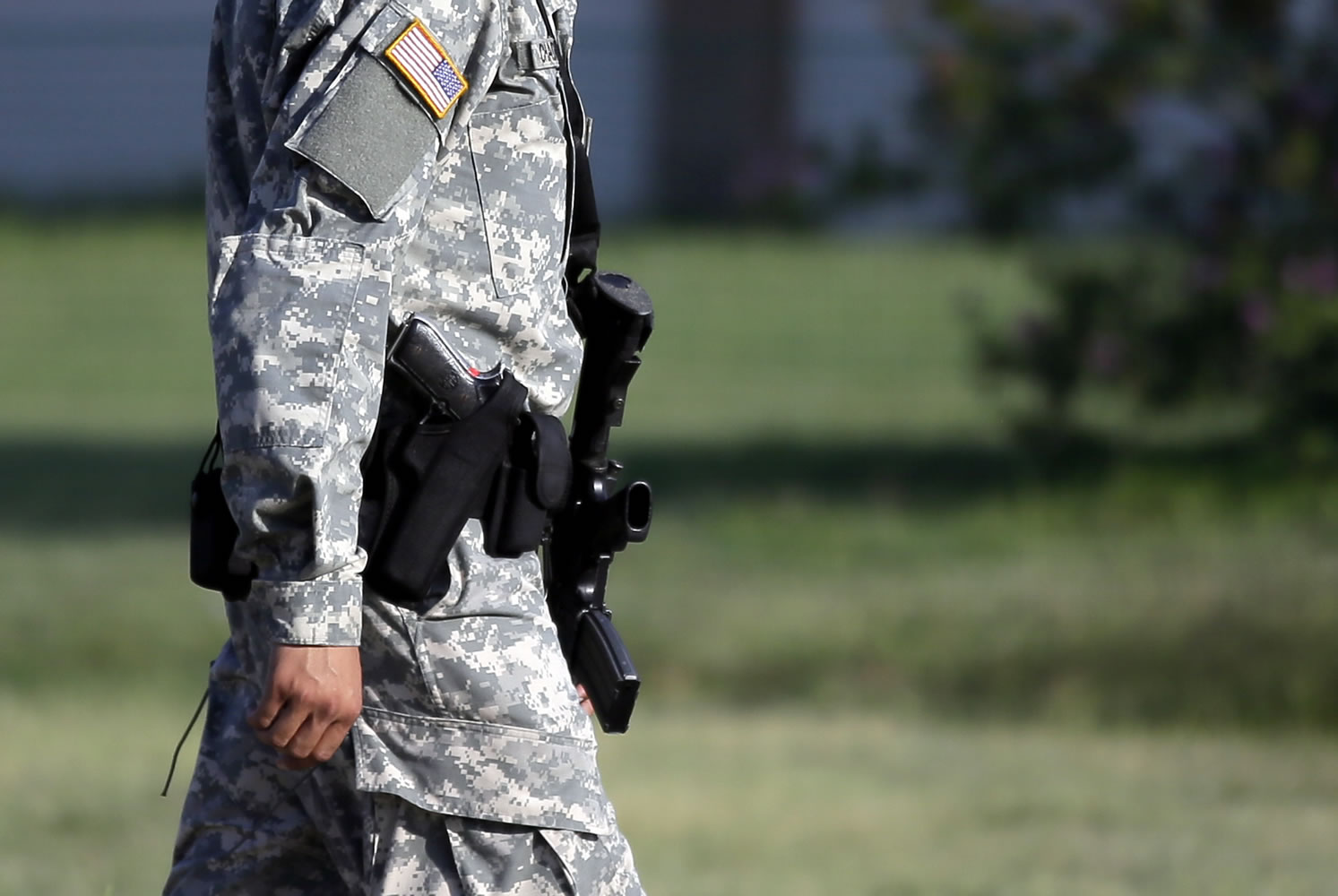FORT HOOD, Texas — Jurors deciding whether to impose a rare military death sentence on the Army psychiatrist who fatally shot 13 people at Fort Hood in 2009 heard testimony Monday from victims and their families, including a soldier who was expected to die after being shot in the head.
Staff Sgt. Patrick Ziegler was among the first people to testify during the sentencing phase of Maj. Nidal Hasan’s trial. Military jurors convicted Hasan last week and are now deciding whether he deserves to be executed for the attack that also wounded 30 people at the Texas military base.
Ziegler said he was shot four times and underwent emergency surgery that removed about 20 percent of his brain. He told jurors that doctors initially expected him to die or remain in a vegetative state. Instead, he was hospitalized for about 11 months and had 10 surgeries, and his injuries left him paralyzed on his left side.
“I think I’m hopeful I’ll continue to recover some movement, but eventually I’ll succumb to my wounds and I won’t be able to function,” Ziegler said, noting that he will never be able to use his left hand, has blind spots in both eyes and can’t drive.
He described his cognitive level as the same as a 10th or 11th grader and said he has fought severe depression.
“I’m a lot angrier and lot darker than I used to be,” he added, saying his injuries had “pretty much affected every facet of my personality.”
The married father also said he has trouble caring for his 10-month-old son, “like a normal father would.”
The sentencing phase will allow surviving victims and relatives of those killed to tell jurors how the shooting rampage has affected their lives. Ziegler was among three soldiers expected to testify who were left debilitated or unfit for service.
But most of the testimony will come from widows, mothers, children and siblings of the slain who are expected to tell the jury of 13 high-ranking military officers about their loves ones and describe the pain of living the last four years without them.
What they won’t be allowed to talk about are their feelings toward Hasan or what punishment they think he deserves.
But the sentencing phase also will be Hasan’s last chance to tell jurors what he’s spent the last four years telling the military, judges and journalists: that the killing of American soldiers preparing to deploy to Iraq and Afghanistan was necessary to protect Muslim insurgents.
Hasan, an American-born Muslim, has admitted that he carried out the shootings and showed no reaction after being found guilty last week.
He is representing himself during his trial, yet he called no witnesses, declined to testify and questioned only three of prosecutors’ nearly 90 witnesses before he was convicted. He also gave no closing statement, and it remained unclear Monday whether he planned to say anything during the trial’s sentencing phase.
The judge, as she has done repeatedly during the trial, asked Hasan on Monday if he wanted to continue representing himself. She went through a series of questions that appeared to be aimed at getting on the record that Hasan was adamant about remaining in charge of his own defense.
“You understand that this is the stage of trial … you are staking your life on decisions you make. You understand?” the judge, Col. Tara Osborn, asked.
“I do,” Hasan said.
She told him that it was “unwise to represent yourself, but it’s your choice.”
At the minimum, the 42-year-old Hasan will spend the rest of his life in prison.
Prosecutors want Hasan to join just five other U.S. service members currently on military death row. No American soldier has been executed since 1961. Many military death row inmates have had their sentences overturned on appeal, which are automatic when jurors vote for the death penalty. The U.S. president must eventually approve a military death sentence.
Jurors must be unanimous to sentence him to death.



